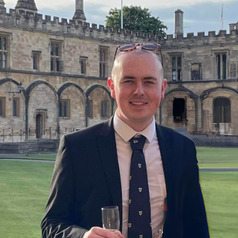
Samuel Johnson
DPhil Candidate in Mathematical Biology, University of Oxford
Samuel is a DPhil (PhD) candidate based in the Wolfson Centre for Mathematical Biology at the Mathematical Institute, University of Oxford. His research concerns the collective migration of cell populations during embryonic development.
In his research, Samuel uses mathematical and computational modelling to gain insight into the factors affecting collective cell movement, with implications for the development of treatments and therapies for diseases associated with misdirected cell migration in development.
Prior to his DPhil studies, Sam studied for a master's degree in applied mathematics at the University of Cambridge and a bachelor's degree in theoretical physics at the University of Edinburgh.
Less ![]()
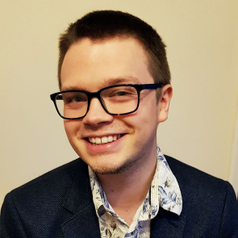
Samuel Jones1
Lecturer in Applied Cognitive Psychology, The Open University
My core interest is in the effects of ageing on the brain, particularly in relation to how older adults process sensory signals (from sight, sound, touch, etc.), though I am also involved in a range of other psychology and cognitive neuroscience research. I use a variety of methods in my research, including computerised behavioural testing (online and in person), fMRI, eye tracking, and computational modelling.
Less ![]()
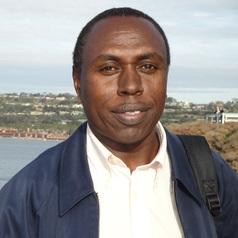
Samuel Kariuki
Chief Research Scientist and Director, Centre for Microbiology Research, Kenya Medical Research Institute
Sam Kariuki is Chief Research Scientist and Director, Centre for Microbiology Research at KEMRI in Nairobi and a Wellcome Trust Sanger Institute International Fellow. He is visiting Professor of Tropical Microbiology, Nuffield Department of Medicine, University of Oxford, UK. He is Co-ordinator of Medical Microbiology postgraduate course, Institute of Tropical Medicine and Infectious Diseases, KEMRI. He has research interest in the epidemiology and antimicrobial resistance of enteric bacterial pathogens, including invasive non-typhoidal salmonellosis (NTS) and typhoid fever, Shigella spp, Vibrio cholerae and Escherichia coli. He is Chair, Global Antimicrobial Resistance Partnership (GARP)-Kenya chapter and in 2014-16, led the initiative for development of the Situational Analysis on AMR in Kenya culminating in the National Action Plan Draft document. He has Authored/co-authored over 130 papers in peer-reviewed journals and 3 text books on Antimicrobial resistance and Food Safety.
Less ![]()

Samuel Kerstein
Professor of Philosophy, University of Maryland
Samuel Kerstein (PhD, Columbia University) is Professor of Philosophy. His research focuses on Kant's moral philosophy, normative ethics, and bioethics. Several of his current projects stem from his book How to Treat Persons (Oxford, 2013). For example, he is developing a Kantian conception of the dignity of persons and exploring its implications for issues in bioethics, including the fair distribution of scarce, life-saving resources and moral constraints on medical research.
Less ![]()
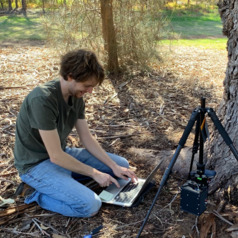
Samuel Lymbery
Postdoctoral Fellow in Biosecurity, Murdoch University
I am an entomologist, evolutionary biologist, behavioural ecologist, and biosecurity researcher. I completed my PhD at the University of Western Australia in 2019, where I worked on the social evolution of sexual conflict with Prof Leigh Simmons and Prof Joseph Tomkins. Subsequently, I spent a year at the University of Exeter investigating the interplay between kin groups and alternative reproductive tactics with Prof David Hosken, Prof Nina Wedell, and Prof Joseph Tomkins. In 2021, I was fortunate enough to secure a Forrest Fellowship at UWA and CSIRO, where I collaborated with Prof Raphael Didham and Dr Bruce Webber to conduct groundbreaking new research on the ecology of warfare between native and invasive ants.
At the time of writing, I am a Postdoctoral Fellow in Biosecurity at Murdoch University's Harry Butler Institute, where I am investigating the risk of hitchhiker pests in the global shipping pathways, along with Prof Melissa Thomas and Prof Simon McKirdy.
I am generally interested in the effects of behaviour on species ecology, particularly in insects, and am keen to expand on my previous work on the ecology and dynamics of non-human warfare.
Less ![]()
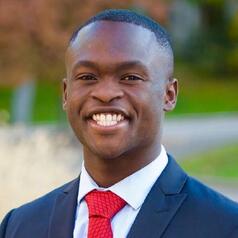
Samuel Mawutor
PhD Student in Geography and Geospatial Sciences, Oregon State University
I am a Political Ecology scholar with research interests in global commodities and deforestation, community rights and forest defenders, transnational forest governance, community-based natural resource management systems, and local ecological knowledge.
I am a Political Ecology scholar with research interests in global commodities and deforestation, community rights and forest defenders, transnational forest governance, community-based natural resource management systems, and local ecological knowledge.
Less ![]()
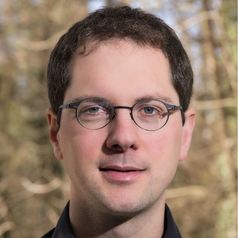
Samuel Morin
Chercheur et directeur du Centre national de recherches météorologiques (Météo-France - CNRS), Météo France
Domaines de recherche :
• Simulation numérique de l’évolution des propriétés physiques de la neige ; développement et utilisation du modèle de manteau neigeux détaillé Crocus.
• Investigations expérimentales et in situ de l’évolution temporelle des propriétés optiques, thermiques et microstructurales de la neige alpine. Développement et utilisation d’outils de mesure objectives de propriétés physiques de la neige (conductivité thermique, surface spécifique, …).
• Applications des modèles de manteau neigeux pour des problématiques multiples (risque d’avalanches, enjeux hydrologiques, tourisme de montagne) à courte échéance ainsi qu’en projection climatique.
Directeur du CNRM depuis le début de l’année 2021, Samuel Morin a auparavant dirigé le Centre d’études de la neige de 2015 à 2020. Il a obtenu son habilitation à diriger des recherches en 2014 à l’Université Grenoble Alpes. Il est diplômé de l’École normale supérieure de Paris depuis 2006.
Less ![]()
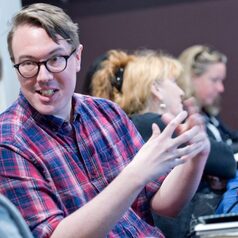
Samuel Murray
Lecturer in Music, University of Liverpool
Dr Sam Murray is a lecturer in music industries joining to cover for Dr Sarah Price who is on research leave. Alongside this role he is a lecturer in music business and arts management at Middlesex University, which he joined at the end of 2019 following his work as a Policy & Research Officer for UK Music, the main campaigning and lobbying group for the music industries in the UK. He has also previously worked with the Council of Music Makers.
He has previously been a research associate at Teesside University on the Creative Fuse North East project, and a research assistant at Cardiff University as part of Creative Cardiff.
He also previously worked for UK Music as a Policy & Research Officer working on their Music by Numbers Report as well as regional city reports exmaining music-making in Manchester and Sheffield. He also worked on policy research in support of reducing business rates for grassroots music venues, changes to the visa system to benefit musicians and improving support for the live music industry in Wales.
For over 10 years Sam has played Clarinet with the touring band Me and My Friends and has released three albums Beneath a Level Head (2012), Hide Your Way (2016), Look Up! (2018) and Before I Saw the Sea (2023) with the band. The band have performed on BBC Radio 4's Loose Ends Programme, featured on french station Radio Nova's compilations NovaTunes 3.5 and 3.9 and have performed at many of the UK's biggest festivals including Greenman, Shambala and Kendall Calling.
Sam's research has specialised in examining music policy, particularly within music cities. For his PhD he undertook extensive ethnographic research exploring the music scene in Portland, Oregon and exmaining the impact of local policy making. He also co-authored Mapping Cardiff's Creative Economy a report into the state of the creative industries in the Welsh capital. He project managed ground-breaking innovation pilots for Teesside University as part of Creative Fuse North East and worked on successful innovation projects such as Unfolding Theatre's Multiverse Arcade debuted at the Great Exhibition of the North in 2018.
His research has appeared in City, Culture & Society as well as the Green European Journal. He has also been part of the music education advisory group for the Senedd Culture, Welsh Language and Communications committee resulting in the Hitting the Right Note Inquiry into funding for and access to music education report and recently appeared before the committee to give evidence to their Live Music Inquiry.
More recently he has published chapters on The Kingsmen's 'Louie Louie', Céline Dion's performer-audience interactions in her Las Vegas residency and has forthcoming work on teaching methodologies in music industry studies.
Less ![]()

Samuel Redman
Sam Redman specializes in 19th and 20th century U.S. history with a focus on culture and ideas. In 2012, he completed his doctoral dissertation, "Human Remains and the Construction of Race and History, 1897-1945" at the University of California, Berkeley. At Berkeley, Redman worked at the Regional Oral History Office (ROHO) where he completed dozens of oral history interviews on a wide variety of subjects. At ROHO, he served as Lead Interviewer for the Rosie the Riveter / WWII Home Front Oral History Project and the Japanese American Confinement Sites Oral History Project - both in collaboration with the National Park Service. Working with a team at ROHO, he launched a project documenting the oral history of the San Francisco - Oakland Bay Bridge resulting in the completion of over a dozen new interviews with men and women who worked on the bridge. Before graduate school, he worked in several museums including the Field Museum of Natural History, Colorado History Museum, and Science Museum of Minnesota. He is the author of "Historical Research in Archives: A Practical Guide" published by the American Historical Association in 2013. His first book, "Bone Rooms: From Scientific Racism to Human Prehistory in Museums", was published by Harvard University Press in March, 2016.
Less ![]()
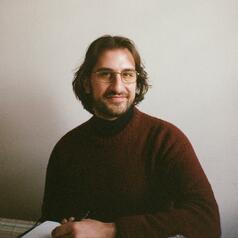
Samuel Ritholtz
Max Weber Fellow in the Department of Political and Social Sciences, European University Institute
I’m an academic and writer interested in the politics of identity, stigma, and brutality during war and other episodes of violence. My research centers the lives of the socially marginalized, particularly LGBT populations, during conflict, crisis, and displacement.
Less ![]()
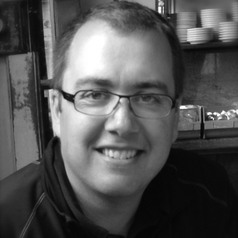
Samuel S. Holloway
Sam Holloway is an Associate Professor of Strategy and Entrepreneurship at the University of Portland. His research on business model innovations examines how strategy affects the design of organizational architectures and has been published in Academy of Management Journal, Strategic Management Journal, Academy of Management Best Paper Proceedings, Academy of Marketing Science Review, and Journal of Strategic Innovation and Sustainability, among others. His current research includes studying the business side of craft brewing. Based upon his research, Dr. Holloway (and fellow UP Professor, Dr. Mark Meckler) launched CRAFTINGASTRATEGY.COM, a global online learning community whose mission is to empower craft brewing entrepreneurs to run profitable businesses, so they can create more jobs and transform their local communities for the better. Additionally, Sam teaches undergraduate and MBA courses in strategy, entrepreneurship, and innovation. Sam also helped launch the Pamplin School of Business’ first online courses as part of the school’s Continuing Education Certificate: Craft Beer Business Strategy.
Less ![]()

Samuel Scanlon
PhD Candidate in Sociology, University College Dublin
Samuel Scanlon is a final year PhD candidate with University College Dublin's School of Sociology performing comparative research on conflict tourism practices in Northern Ireland and Palestine/Israel and how this industry furthers peace processes and/or perpetuates conflict through the consumption and presentation of these attractions. His principal research interests lie in the interdisciplinary field of Peace & Conflict studies with specific focus on Conflict Tourism, Transitional Justice, Truth/Narrative, Memory, Identity, Nationalism, Human Rights, and International Law.
He has received the John & Pat Hume scholarship from Maynooth University and his current project is funded under the Ad Astra scholarship in UCD
Less ![]()
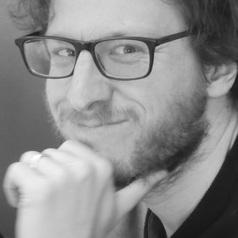
Samuel Shaw
Lecturer in History of Art, The Open University
I work primarily on the history of art and exhibition culture in Britain in the long nineteenth century, with a particular interest in Anglo-Jewish artists and identity, transnational networks, and the relationship between art, visual culture, and the natural sciences.
Less ![]()
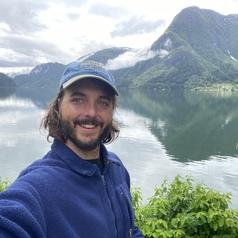
Samuel Starko
Forrest Research Fellow, The University of Western Australia
I am broadly interested in how marine habitats interact with environmental drivers, especially in the context of global environmental change.
Less ![]()

Samuel Tanner
Professor and Department Director, School of Criminology, Université de Montréal
Full Professor at the School of Criminology at the Université de Montréal, Samuel Tanner is also a regular researcher at the Observatoire International sur les Impacts Sociétaux de l’IA et du Numérique (OBVIA) and a member of CÉRIUM. He is the founder and head of the research laboratory on technology, activism, and security, LarTAS. His recent research interests focus on digital vigilantism, as well as the role of digital platforms in the production and dissemination of far-right discourses.
Less ![]()

Samuel Winton
Postgraduate Researcher, University of Portsmouth
Sam Winton is a postgraduate researcher who has been working for the Revolution Plastics Institute at the University of Portsmouth since its creation in 2020. Additionally, Sam is currently conducting his PhD studies titled ‘To what extent has the structure and implementation of the INC process facilitated the development of an effective Global Plastics Treaty?’ at the University of Portsmouth and the University of Surrey. With a background in environmental hazards and community preparedness, his main research focus is working with communities and a broad range of stakeholders to tackle environmental challenges. Sam has also conducted work with international organisations to create policies to tackle the global plastics problem and facilitate sustainable development.
Less ![]()
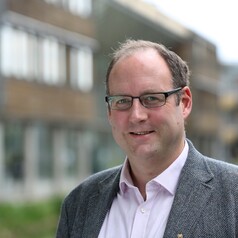
Samuel A. Beatson
Lecturer in Finance, Risk and Banking, University of Nottingham
Sam undertook his Ph.D., entitled ‘Foreign Investors in the Chinese Stock Market’ at Nottingham University, during which he won several scholarships. He is now an award-winning business school lecturer at Nottingham, in addition to being a recipient of a Lord Dearing prize. He has taught Masters Students, including MBA students in empirical methods, corporate governance, quantitative approaches to research in business and finance, in addition to personal professional development, corporate risk and consumer ethics. He was formerly a module convenor and teaching fellow at King's College London's Lau China Institute where he was complimented on many occasions for his contribution to the China and Globalisation programme. Sam has advised and led projects as a specialist in economic and social research to a number of UK Government departments and arms-length bodies, across a number of high profile national and international policy programmes. Prior to this he was awarded a business and international relations degree with Chinese language at the Sheffield School of East Asian Studies. Sam specializes in bringing advanced analytical economic and financial skills and capabilities to complex, data- and policy- driven projects in multi-disciplinary teams, requiring project management, research, teamworking, stakeholder engagement and delivery to tight timescales.
Less ![]()

Samuel C. Mahaney
Director, Missouri S&T Policy and Armed Forces Research and Development Institute; Lecturer of History, National Security, and Leadership, Missouri University of Science and Technology
Less ![]()
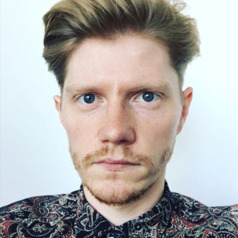
Samuel James Westwood
Lecturer in Psychology Education, King's College London
Samuel is a cognitive neuroscientist and Lecturer in Psychology Education at King's College London. His research interests focus on investigating treatments in psychiatry, particularly in neurodevelopmental conditions, such as ADHD. His work also includes disseminating guidance on how research can move toward more transparent and reproducible research practices. Some of this work includes founding and leading the RIOT Science Club (www.riotscience.co.uk), a popular seminar series franchised to several universities in the UK and Europe and supported by the UK Reproducibility Network. You can find Samuel on Twitter (@westwoodsam1), where he tweets mainly about his miniature sausage dog, Stanley.
Less ![]()
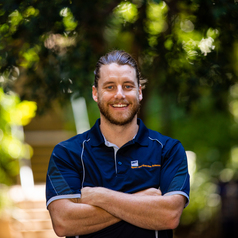
Samuel L. Torrens
PhD Candidate, Queensland University of Technology
Samuel Lewis Torrens is a PhD at Queensland University of Technology. His research is on 'Computational Chemistry and Blood Acid-Base Data for The Metabolic Acidosis of Multiple Disease States'.
Less ![]()

Samuel Suárez Suárez
Profesor Ayudante Doctor, Departamento de Ciencias de la Salud, Área de Psicología Básica, Universidad de Burgos
Mi actividad investigadora se centra, fundamentalmente, en la caracterización de los efectos neurocognitivos del consumo intensivo de alcohol (Binge Drinking) en jóvenes y adolescentes sobre distintos procesos cognitivos y emocionales empleando técnicas de neuroimagen como la resonancia magnética funcional (IRMf) o la electroencefalografía (EEG); con especial interés en la interacción entre procesos emocionales y procesos cogntivos de carácter ejecutivo (p.ej., toma de decisiones, control de impulsos, etc.). Además de haber realizado estancias de especialización en la Universidad Jaume I de Castellón y en la Universidad Complutense de Madrid, actualmente, trabaja en la Universidad de Burgos y colabora de forma activa con los grupos de investigación en psicopatología experimental (LEP) de la Université Catholique de Louvain y el grupo de investigación en Neurociencia Cognitiva y Afectiva (NECEA) de la Universidade de Santiago de Compostela
Orcid:
https://orcid.org/0000-0002-4437-3074
Less ![]()

Samuele Carlo Ayrton Abrami
PhD candidate, Università Cattolica del Sacro Cuore - Catholic University of Milan
Samuele C.A. Abrami is a PhD candidate at the UCSC in Milan, where he is also subject expert in the courses of Geopolitics and History and Institutions of Asia. He is research assistant at the International Center for Contemporary Turkish Studies and Ce.St.In.Geo. Samuele is now visiting researcher at Sabancı University in
Istanbul, where he is working on his project about the link between internal and external dimensions in Turkish Foreign Policy as well as on Türkiye’s relations with the EU, Balkans and Wider Mediterranean. Since 2023, he is part of the Türkiye- Europe Future Forum, of the German-Italian Spinelli Forum, and a CM-Lerici recipient at the Stockholm Institute for Turkish Studies.
Less ![]()

Samy Cohen
Directeur de recherche émérite (CERI), Sciences Po
Samy Cohen est directeur de recherche émérite à Sciences Po (CERI). Ses deux derniers ouvrages parus : Tsahal à l’épreuve du terrorisme (Seuil, 2009) et Israël et ses colombes : enquête sur le camp de la paix (Gallimard, 2016).
Less ![]()
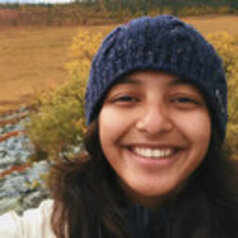
Samyuktha Rajan
PhD candidate in Behavioural Ecology, Stockholm University
I am broadly interested in understanding the evolution of birdsong as a complex, multifaceted signal. For my PhD, I am looking at the interplay between innate and social processes on song learning and subsequently, its impact on evolutionary processes such as sexual selection and speciation.
Less ![]()

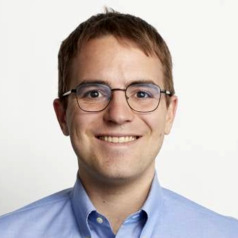
Sander De Groote
Lecturer, School of Accounting, Auditing and Taxation, UNSW Sydney
Sander joined the School of Accounting, Auditing and Taxation as a Lecturer in April 2020. He completed his PhD at KU Leuven in Belgium and also holds a bachelors and master’s degree from KU Leuven.
Sander focusses on corporate governance, with a specific interest in the complex relations between company directors and the role of director behaviour in the firm information environment.
His expertise lies in evaluation and quantifying determinants and consequences of individual behaviour in corporate boards. His interest is in assessing fairness in the firm information environment and in the treatment of different members of the board of directors. Sander studies insider trading using it as a measure of director diligence and ethics.
His work has been published in Journal of Business Ethics, Auditing: a Journal of Theory and Practice, Decision Support Systems, and Accounting Research Journal.
Less ![]()

Sander Hölsgens
Assistant Professor, Leiden Institute of Cultural Anthropology and Development Sociology, Leiden University
Less ![]()
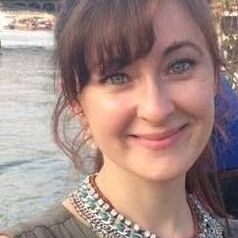
Sandhya Fuchs
Assistant Professor in Social and Cultural Anthropology, Vrije Universiteit Amsterdam
I am a legal anthropologist with ten years experience working in India and the British South Asian diaspora. My work analyses the social life of hate crimes and explores what success, justice and hope mean for communities and individuals who seek justice through hate crime and hate speech legislation in the South Asian context. In particular, I examine how legal institutions and actors engage competing visions of history and contested landscapes of social memory when evaluating claims of hate, discrimination, identity- based violence.
My first book, which explores the social life of India's only hate crime law - the 1989 Scheduled Castes/ Scheduled Tribes Prevention of Atrocities Act - will be published by Stanford University Press in June 2024 (https://www.sup.org/books/title/?id=36293).
The book explores what it means for hate crime laws to be successful and analyzes how hate crime laws can be actively dismantled and even weaponized against minorities by police and courts, while, simultaneously opening up new avenues of hope and restitution in the inetrstices of daily life.
Less ![]()
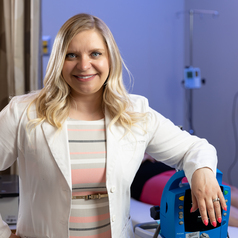
Sandi Dumanski
Assistant Professor, Department of Medicine, University of Calgary
Dr Dumanski is an Assistant Professor in the Department of Medicine at the University of Calgary. Dr Dumanski is a nephrologist (kidney doctor) and scientist whose program of research endeavors to understand the complex relationships between reproductive health, sex hormones, and cardiovascular risk. Dr Dumanski sits on the Canadian Women's Heart Health Alliance and is the Central Physician Lead for ‘Wear Red Canada’, celebrated annually to raise awareness of women’s heart health.
Less ![]()

Sandile Swana
Sandile Swana is an ICT entrepreneur and part-time lecturer at the Wits Business School Municipal Finance Programme. He completed a BComm at Wits in Economics and Business Information Systems, a BComm Hons Logistics at UNISA, and holds an MBA from the University of Pretoria. He has also completed BTh and BTh Hons in Christian Ethics and Leadership through UNISA. He is a member of Institute of Information Technology Professionals of South Africa and also the Institute of Risk Management of South Africa. Areas of interest:
African Development Economics; Entrepreneurship; Risk Management; Strategy; African Leadership; African Ethics; African Technology Development; ICT; African Logistics; Cost Management; Local Government.
Less ![]()
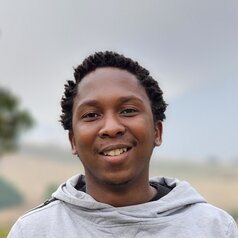
Sandiso Mnguni
GENUS Postdoctoral Research Fellow, University of the Witwatersrand
I am a palaeoentomologist: I study fossil insects. My fossil insects are dated to be 90 million years old and were recovered at Orapa Diamond Mine in Botswana.
Less ![]()
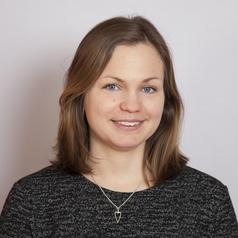
Sandra Ekstrom
Postdoctoral Researcher in Epidemiology, Karolinska Institutet
My main research area is within nutritional epidemiology. I am interested in the role of nutritional factors such as dietary fatty acids for the development of asthma and other allergic diseases. I am also interested in consequences of living with an allergic disease as a young adult in relation to working life and lifestyle factors. My research is based on the Swedish BAMSE birth cohort, which includes around 4000 participants followed from birth until adulthood. Currently, we are performing a COVID-19 targeted follow-up in BAMSE where we study risk factors and consequences of COVID-19 in young adults.
Less ![]()

Sandra Flynn
Lecturer in Psychology and Mental Health, University of Manchester
Dr Sandra Flynn is an experienced researcher in the field of forensic mental health working within the Centre for Mental Health and Safety. As a Lecturer, her passion lies in supporting MSc Forensic Psychology and Mental Health Students develop real world research. Dr Flynn completed both her Masters of Arts and her Doctor of Philosophy at the University of Manchester and an MSc in Investigative Psychology at the University of Huddersfield. Prior to becoming a Lecturer, she contributed extensively to the National Confidential Inquiry into Suicide and Safety in Mental Health as a Research Fellow and has completed work in this profession for over 20 years. Her research interests include suicide, familial homicide, homicide-suicide and violence by people with mental illness. Her work has centred on improving safety in mental health and criminal justice settings, with a specific focus on suicide prevention.
Less ![]()
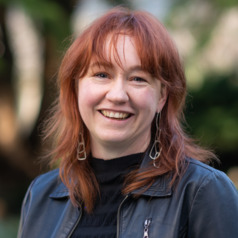
Sandra Kuntsche
Associate Professor Family Therapy and Systemic Research, La Trobe University
Sandra directs the research program at the Bouverie Centre, La Trobe University since September 2023. She graduated with a PhD in Health Medicine and Life Sciences from the University of Maastricht (Netherlands) in 2011 and has over 20 years of experience in quantitative alcohol research. She is one of the world leading researchers on the impact of social roles on alcohol use. Her research centers on the social determinants of alcohol use with a focus on the impact gender, societal factors and cultural differences have on the interplay between the individual’s social role and personal alcohol use. She has repeatedly developed and evaluated health promotion and prevention programs in collaboration with end users, most recently addressing the increasing alcohol use of middle-aged women in Australia. Other central topics of her recent work are the impact parents have on the alcohol cognitions of their children as well as what role alcohol plays in the work-life balance of parents.
Less ![]()
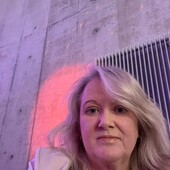
Sandra Lucas
Senior Lecturer, School of Health Sciences, University of the West of Scotland
Less ![]()
- Market Data





















